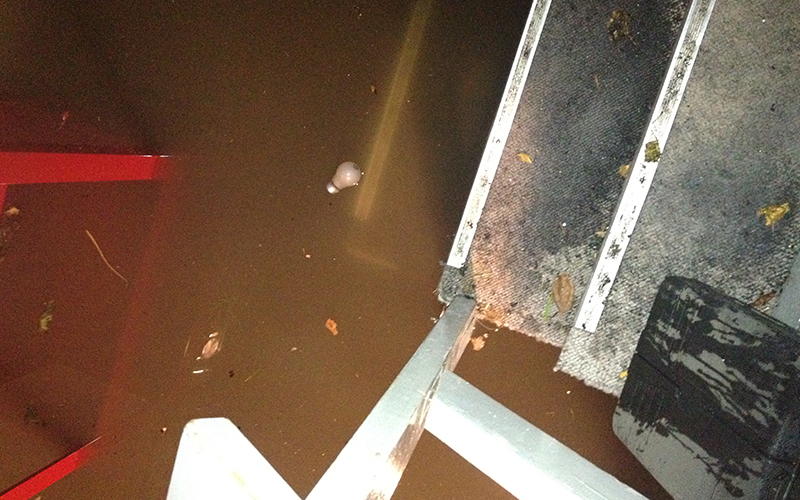One of the most common problems for basement owners related to water damage, moisture, and other organic materials are foul smells and odors. Poor air circulation, high moisture content, urine, organic material, dead animals, and a flooded basement are all the recipes for your basement to become host to various stinks.
Mold and Mildew Musty
Basements are prone to moisture and water damage, especially when they are not correctly waterproofed. This causes molds and mildews, which have a unique and musty smell to them and could cause health problems if not fixed immediately.
Molds could also form on dead animals such as mice and, when exposed to moisture, could hasten and strengthen the musty smell of decomposition. The more moisture present in your basement, the faster mold and mildew grow and spread.
The best way to prevent molds and mildews is to keep your basement as dry as possible. You could also throw out affected furniture, fabrics, cardboards, or any absorbent material. Ensure that all possible sources of water are adequately sealed, and drains are unclogged. You could also invest in a dehumidifier to pull moisture or water vapor out of the air. If the problem persists, consider hiring the right professionals to fix the issue of moisture and water damage as well as molds and mildews.
Sewer Gas
If you smell the overpowering odor of sewage, it is highly probable that it is sewer gas accumulating in your basement. In large quantities, sewer gas can be toxic and even explosive, especially in confined spaces.
The smell typically originates from sewer lines or septic tanks containing waste materials. Sewer gas contains a mixture of methane, sulfur dioxide, carbon dioxide, and nitrous oxides that could pose health problems to people and pets.
When you smell sewer gas, the most common cause is because of the basement’s floor drain p-trap dried up, allowing the gas to seep up. It could also be from a broken or missing cleanout plug in the floor drain. Another cause could be from cracks or leaks in sewer lines, which is a more serious problem and would require a plumber to fix.
Regularly check if your P-traps are primed with enough water in the curved section to prevent sewer gas from leaking. Locate cleanout plugs and ensure that they are in good condition. If the problem persists, better contact a plumber to help you.
Urine
The pervasive smell of ammonia in animal urine is very distinct and very difficult to remove when it attaches to porous materials like wood, wallboards, fiber, or concrete. It could make clean up complicated when coupled with moisture, which lets bacteria breed. Additionally, the longer urine sits, the harder it is to remove the smell. This also attracts your pets, such as dogs and cats, and pests to return to the affected area.
Regular cleaning using everyday household items, including vinegar, detergent, baking soda, or peroxide, would only work to a minimal extent. DO NOT combine bleach with ammonia as this would produce hazardous fumes that, when inhaled, could lead to health problems or even death.
The best remedy for woods, wallboards, and fibers is to throw them out and replace them. However, if you do not have the budget to buy new ones, you could use enzyme-based products to break down the bacteria in urine and neutralize the stinky odor. This also works for concrete surfaces, which are harder to replace.
If all else fails, you could always call professionals for help.
Dead Animals
One of the worst smells you could encounter in your basement is the stench of decomposition. Combined with high moisture, rotting organic matter would be a good breeding ground for molds and fungi. This is why you also have to ensure that your basement is waterproofed.
There is nothing much left to do but to locate the source and dispose of it. However, if the decaying dead animal such as a rat or bat were inside a crevice or wall, time would be the only solution.
Keeping A Fresh Basement
Now that you know what could cause the smells in the basement, here are tips to keep your home smelling fresh.
- Ventilate your basement properly with exhaust fans and air ducts.
- Waterproof your basement thoroughly. You could do it yourself, or for better results, call professionals for help.
- Repair all leaks and plug any holes in walls that could host any pest.
- Keep it clean so as not to attract unwanted visitors a.k.a rats and other pests.
- Control humidity and lessen moisture.

